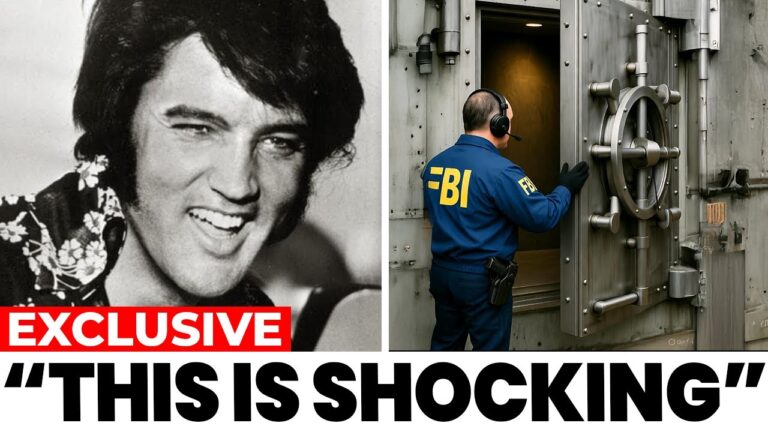Detroit winters had a way of freezing everything — even sound. The streets looked like veins of steel beneath the snow, and inside a half-lit garage at the edge of Grayson Street, Eddie “Steel” Ramos worked beneath a rust-eaten truck, the wrench echoing like a heartbeat in the cold.
He was sixty-two, short, compact, his arms covered in ink and burn scars. Once, he’d been a street racer — Steel Eddie, the kind of name people used to whisper with envy or fear. Now he fixed engines for whoever could pay in small bills or stale sandwiches.
His apprentice, Miguel, shuffled in, holding two paper cups of coffee.
“Old man, you’re still here? It’s freezing out.” Eddie wiped his hands on a rag. “Guy needs his truck tomorrow. As long as something needs fixing, I’m not done yet.”
Miguel smirked. “You’ll fix every car in town but never your own damn life.” Eddie only smiled, slid back under the chassis, and kept turning the wrench.
Around midnight, the garage lights died. Eddie threw on his cracked leather jacket, straddled his 1982 Harley, and let the engine’s growl follow him into the dark.

Snow fell heavier as he crossed the Rouge Bridge — a long, forgotten stretch of iron and ice. That’s when he saw it: a small sedan overturned near the guardrail, smoke curling from under the hood.
He braked hard, tossed his helmet, and ran. A young woman was trapped inside, screaming when he tried to pry open the door.
“Stay back! I called the cops!” “You won’t make it out before she blows,” he barked, grabbing a crowbar.
The door gave way with a shriek of metal. Eddie pulled her free just as flames licked the dashboard. They tumbled into the snow. She looked up, eyes wide.
“You’re bleeding…” He glanced at the glass stuck in his forearm, blood turning the snow pink.
“Good,” he said. “Means I’m still running.”
Then came the sirens — blue and red washing over the bridge. The woman slumped, unconscious. A young cop rushed forward, gun drawn. “Hands off her! Now!”
“I was helping—” “On your knees! Hands behind your head!”
A shove, a click of cuffs. Cold metal bit into his wrists. Another officer fished out a folding knife and a bloody necklace from his pocket.
“Weapon and stolen property. Let’s move.” Eddie tried to speak, but the wind swallowed his words.
Next morning the local news ran the story:
“Suspect arrested in assault on young woman near Rouge Bridge. Eddie Ramos, 62, former illegal street racer.” People looked at the photo — the tattoos, the oil-stained face — and nodded.
“Looks guilty enough.” The garage was sealed. Miguel got fired. Customers stopped calling.
In the county jail, Eddie lay on a steel cot listening to hail on the roof. A guard shoved a meal through the slot. “Hero of the night, huh?”
Eddie said nothing. The guard squinted. “You praying or talking to yourself?”
“Neither,” Eddie murmured. “Just listening to my engine.”
Three weeks later, the girl — Rachel — woke up in a hospital bed. When the detectives came, she spoke slowly:
“No one attacked me. That man… he saved my life.”
“You’re sure? We found his blood, a knife, your necklace—”
“The blood’s his. The necklace is mine.”
By afternoon, the story flipped. Eddie was released the next day with an empty wallet and no apology.
He walked home through gray slush and silence. His garage door hung crooked, sealed with police tape.
Miguel was waiting by the curb, hands in his pockets.
“They said you did it. I didn’t know what to believe.”
Eddie gave a faint grin. “Engines stall sometimes. Important thing is — there’s still gas left.”
That evening, Rachel came to find him. She carried a small bouquet and the same necklace, cleaned and gleaming.
“I owe you an apology,” she said.
Eddie was wiping grease from a carburetor. “You don’t owe me a thing. People believe what they see.”
“But you lost everything because of it.”
He shrugged. “Anger doesn’t fix engines. It just burns more fuel.”
She looked around the dim shop, at the old man hunched over his bike, hands steady despite the tremor in them.
“People are afraid of your tattoos,” she said quietly. “I see a man carrying other people’s mistakes.”
Eddie finally looked up, eyes tired but kind.
“No problem, kid. As long as the bike runs… and the heart’s still good.”
He kicked the starter. The Harley coughed, then roared. Exhaust smoke curled with the falling snow.
Rachel stood at the doorway as he rolled out, his taillight fading into the storm — just another ghost in Detroit’s winter.
Later that night, someone found a bunch of flowers and a silver necklace laid beside the guardrail on Rouge Bridge.
Beneath a thin crust of snow, spray-painted words read:
“Don’t fear the scars — they’re proof he saved someone.”
Months passed.
Eddie was back on the road again, fixing engines out of alleys, sometimes offering rides to strangers stranded by broken cars.
One afternoon a little boy watched him change a tire and asked,
“Why do you keep helping people you don’t even know?”
Eddie laughed, wiping his hands.
“I got two things to keep running, kid: the bike… and my prayer.”
“What prayer?”
He looked toward the distant skyline, where smoke met the clouds.
“When the engine’s still running, don’t let the heart stop.”
The Mechanic’s Prayer isn’t about being proven innocent.
It’s about doing right without needing anyone’s approval — about a man whose kindness hums quietly beneath the roar of old engines.
Because sometimes, a mechanic can’t fix the world…
…but he can keep it running a little longer.





